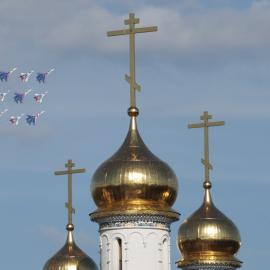In an article published in The Washington Quarterly in April 2009, I addressed a narrow but important question: Was it true, as Soviet President Mikhail Gorbachev claimed, that Western leaders, during the 1990 negotiations on German reunification, promised him that NATO would not expand into eastern Europe? I examined the declassified negotiating records and concluded that no such promise was ever offered.
Mary Elise Sarotte (“A Broken Promise?” September/October 2014) points to my article as an example of the history she intends to correct, but she provides nothing that would change my judgment about what happened. As I wrote, the question of NATO’s possible expansion eastward arose numerous times during negotiations Gorbachev conducted with U.S. Secretary of State James Baker, West German Chancellor Helmut Kohl, and U.S. President George H. W. Bush. Viewed in context, however, it is clear that they were speaking solely about expanding the alliance into East Germany.
Sarotte admits that Gorbachev never received a formal promise regarding NATO expansion, but she does refer to a conversation in early 1990 between Douglas Hurd, the British foreign secretary, and Hans-Dietrich Genscher, the West German foreign minister, in which Genscher suggested that NATO should issue a public statement saying it did not intend to expand eastward. But nothing about this discussion was ever disclosed to Gorbachev or to any other Soviet policymaker. Hence, it is a red herring, irrelevant to any judgment of the East-West negotiations.
Sarotte implies that Bush and Baker, throughout the negotiations, were hell-bent on enlarging NATO into central and eastern Europe. This is not true. U.S. leaders believed that NATO should include a reunified Germany but were opposed to enlarging the alliance beyond that. Indeed, whenever policymakers from Czechoslovakia, Hungary, or Poland raised the question of admission into NATO in 1990 and 1991, U.S. officials made clear that no such offer was on the table. In June 1991, Manfred Wörner, then NATO’s secretary-general, even declared publicly that granting NATO membership to former Warsaw Treaty members “would be a serious obstacle to reaching mutual understanding with the Soviet Union.”
After the Soviet Union collapsed, the first Bush administration continued to oppose NATO enlargement, a position the Clinton administration also later embraced. Eventually, the Clinton administration shifted to favoring NATO enlargement. The driving force behind expansion, however, was not the United States but the governments of eastern Europe, which did all they could to persuade the alliance to include them.
MARK KRAMER
Director, Project on Cold War Studies, Harvard University
SAROTTE REPLIES
Those who read my article will note that I agree with Mark Kramer: no formal pledge against NATO expansion surfaced in 1990. But on the basis of new evidence, presented in the latest edition of my book 1989: The Struggle to Create Post–Cold War Europe, I disagree with Kramer’s now outdated understanding of how that result emerged.
First, Kramer claims that during negotiations about German reunification, James Baker, Helmut Kohl, and Hans-Dietrich Genscher spoke “solely about expanding the alliance into East Germany.” But in fact, visiting Moscow in February 1990, they repeatedly affirmed that NATO would not move eastward at all. Mikhail Gorbachev said that any expansion of the zone of NATO whatsoever was unacceptable, and he let German reunification commence on that basis. As the process unfolded, however, he was forced to accept a NATO presence in former East Germany.
Second, Kramer denies that London and Bonn were considering NATO expansion into eastern Europe at that time. Rather than being “a red herring,” however, the example from Genscher’s papers shows explicitly that Genscher was considering NATO’s presence in eastern Europe.
Third, Kramer claims that U.S. leaders were opposed to expanding the alliance beyond a reunified Germany. But in written accords, Washington fought hard to keep open NATO’s options for further eastward movement. A furious Gorbachev was too weak to resist.
Finally, Kramer deems anything not mentioned explicitly to Gorbachev irrelevant, but it’s unsurprising that Western leaders refrained from revealing all. In a high-stakes chess match, if you’re thinking several steps ahead of your opponent, there is no reason to tell him.
